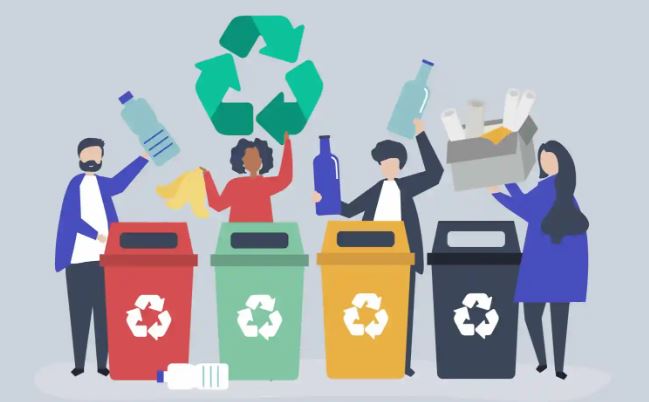India’s waste management system – Issues and way forward

Context: For many years now India has been working, without much success, to ensure that our rivers are not polluted; that the sewage of our cities is treated before it is discharged; and those industries do not pollute.

This topic of “India’s waste management system – Issues and way forward” is important from the perspective of the UPSC IAS Examination, which falls under General Studies Portion.
Challenges in waste management
Rapid urbanization:
- With rapid urbanisation, the country is facing massive waste management challenges.
- Over 377 million urban people live in 7,935 towns and cities and generate 62 million tonnes of municipal solid waste per annum. Only 43 million tonnes (MT) of the waste is collected, 11.9 MT is treated and 31 MT is dumped at landfill sites.
- Solid Waste Management (SWM) is one of the basic essential services provided by municipal authorities in the country to keep urban centres clean.
- However, almost all municipal authorities deposit solid waste at a dump yard within or outside the city haphazardly.
- Experts believe that India is following a flawed system of waste disposal and management.
Combating river pollution:
- Combating river pollution is not possible unless we can provide every Indian with working toilets, connected to systems that safely dispose of human excreta so it does not become another source of pollution and of bad health.
- It is not just about building toilets but also about building sanitation systems that are affordable to all.
- Growth can be sustainable only when it is affordable and inclusive. This is our real challenge.
Segregation of waste:
- The key to efficient waste management is to ensure proper segregation of waste at the source and to ensure that the waste goes through different streams of recycling and resource recovery.
Failure of society:
- Water and culture go hand in hand. So, water shortage is not about the mere failure of rain.
- It is about the failure of society to protect and share its water endowment.
Way forward
- Civic bodies have to redraw their long term vision in solid waste management and rework their strategies as per changing lifestyles.
- They should reinvent garbage management in cities so that we can process waste and not landfill it (with adequate provisioning in processing and recycling).
- Community participation has a direct bearing on efficient waste management.
- To do this, households and institutions must segregate their waste at the source so that it could be managed as a resource.
- Recovery of e-waste is abysmally low; we need to encourage recycling of e-waste on a very large-scale level so that problem of e-waste disposal is contained.
Practice Question for Mains
- We cannot manage our rivers sustainably unless we fix our system of waste management. Comment. (150 Words, 10 Marks)

